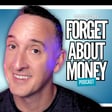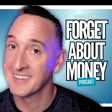
🔥 Factor Investing: Can You Really Beat the Market? | Dan Huffman 📈
Watch and Subscribe on YouTube
🏅Dan Huffman explores the ins and outs of factor investing, a strategy that focuses on specific drivers like value, size, and momentum to potentially boost long-term returns.
He offers expert insights into how factor investing compares to traditional strategies like VTSAX and chill.🏖️
📈 The conversation covers everything from small-cap value investing to the role of momentum in portfolios and whether factor-based strategies can truly beat the market. Dan emphasizes the importance of understanding your risk tolerance and knowing when to rebalance a portfolio.
In this episode, we discuss:
1️⃣ What is Factor Investing: How it compares to passive index investing and why it might be worth considering.
2️⃣ Value vs. Growth Investing: Breaking down the key differences and potential advantages.
3️⃣ Small-Cap Value Investing: Why this specific factor gets so much attention and how it may affect portfolio performance.
4️⃣ Momentum Factor Investing: A look at how recent winners continue to perform.
5️⃣ Rebalancing Factor Portfolios: How often should you be reviewing and adjusting?
🔗 Dan Huffman’s Links:
💡 Cornerstone Financial Planning: https://cornerstonefiplanning.com/
🍀 Size Matters if You Can Control Your Junk: https://www.sciencedirect.com/science/article/pii/S0304405X18301326?via%3Dihub
📚 Kenneth French Data Library: http://mba.tuck.dartmouth.edu/pages/faculty/ken.french/data_library.html
📊 Portfolio Visualizer Backtesting Tool: https://www.portfoliovisualizer.com/
🔗 David's Links:
🍏 Forget About Money on Apple Podcast
🎧 Forget About Money on Spotify
📜 Dan Huffman Quotes:
💡 "Factor investing isn’t for everyone, but for those who want to go beyond traditional index funds, it offers a way to optimize long-term returns." — Dan Huffman
🔗 "The academic research is clear—factors like value and size have outperformed the broad market over time." — Dan Huffman
#financialindependence #valueinvesting #indexfunds #investingstrategies #FactorInvesting
🎧 Listen & Subscribe: Don’t forget to subscribe for more information on investment strategies, financial independence, and more! Hit the bell icon 🔔 to stay updated.
Disclaimer: This episode is for entertainment and educational purposes only and does not constitute legal, tax, or financial advice. Consult a professional for your specific financial situation.

